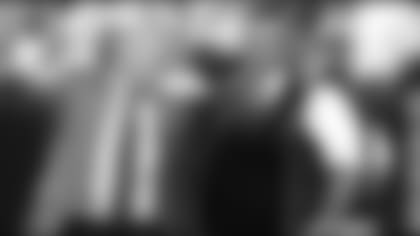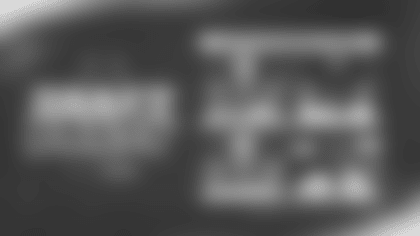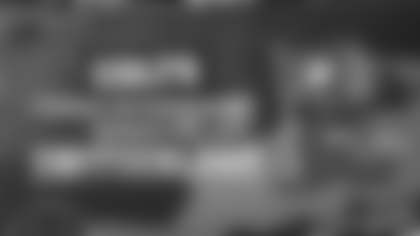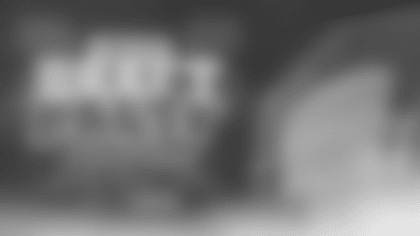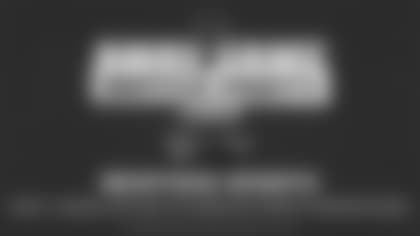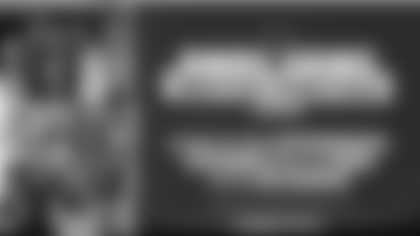End of Season
Bill Polian, who this past weekend completed his 11th season as Colts president, has a resume unique in the NFL. One of two men to win NFL Executive of the Year five times, Polian in the 1980s built the Buffalo Bills into a four-time Super Bowl participant. In the mid-1990s, he built the expansion Carolina Panthers into a team that made the NFC Championship Game in its second season, 1996. Since joining Indianapolis in 1998, he built the Colts from a 3-13 team in 1997 and 1998 into one that has made the playoffs nine of the last 10 seasons, including an AFC Championship Game appearance after the 2003 and 2006 seasons, AFC South titles in 2003, 2004, 2005, 2006 and 2007 and a Super Bowl championship following the 2006 season. Each week during the season, in The Polian Corner, Polian and Colts.com will discuss issues pertinent to the Colts and the rest of the NFL.
Question: The Colts' season ended on Saturday night with a 23-17 overtime loss to the San Diego Chargers in an AFC Wild Card Playoff game. A memorable game and an entertaining one providing you had no rooting interest . . .
Answer: Everyone in this building is sick over the result. Let me say at the outset that this is a football game. I have friends who have lost their life savings. I'm sure everybody has friends who have lost their jobs, as I do. We have men and women fighting in Iraq and Afghanistan – some related to people in this building. A football game in that context is nothing. There are no two ways about that. It's nothing. Having said that, if you're involved in it either as a fan or as someone who is employed by the team, then it's hard to swallow. What makes it so difficult to swallow is that we did it to ourselves. We wasted, I think, one of the great defensive efforts that certainly this group has put together and maybe in the history of this club, given the quality of that offense. Their quarterback (Philip Rivers) came in with a quarterback rating of over 100. We've joked about it (the passer rating) and it's stupid, but everybody is measured by it. It's a benchmark, which is probably what they intended in the first place. But the bottom line is he was barely above a 60 quarterback rating in the game without (Colts cornerback) Marlin Jackson, without (middle linebacker and defensive captain) Gary Brackett, without the two defensive tackles (Quinn Pitcock and Ed Johnson). That's an incredible, incredible defensive performance – four sacks, two turnovers. To not win that game is hard to comprehend and hard to swallow. What happened was we had one of the great defensive plays – maybe in playoff history – knocking them out of field-goal range and forcing them to punt the ball into the wind and into the four-minute period. Now, we're in four-minute (offense), which we practice virtually from Day One of training camp – and virtually from Day One of minicamp – where we want to run the ball and make them use times out. That's exactly what happened. We get six yards on the first play (from the Colts 1). (Running back) Joseph (Addai) rams it up in there and bang, away we go. Now, we have to two downs to make four yards and the game is over. We're going home. Unfortunately, on the next play, we had it completely blocked. It was probably up to the safety. Whether it's the play design or a wrong path, Joe didn't hit the hole as quickly as he should have and it closed up. We didn't get certainly the four yards we were going to get and very likely more. That's no finger-pointing at Joe. As he does every week, he gave 100 percent effort. But he just didn't get to the hole fast enough. As a result, we were forced to go into kind of an exotic formation and they handled it. To their credit, they handled it, then of course we punt the ball to (Darren) Sproles and he does his thing. Everyone in this building, including (Colts Owner and Chief Executive Officer) Jim Irsay, talked about it all week: 'Don't let Sproles beat us in the kicking game,' and he did. They end up tying the score and our defense was out of gas at that point. Plus, obviously the (overtime) penalties didn't help it any, but that game for all intents and purposes should have been over and we should have won. That's very, very tough to swallow, but it is what it is. We'll wallow around and cry in our beer for another couple of days, then we'll get on with the job making this team better. But it is a lesson underscored of what (Colts Head Coach) Tony (Dungy) virtually ends every practice with. He always talks about being on top of the details and taking the right path to that hole in four-minute is a detail – admittedly a minute one, but on those details hinge the winning and losing of football games. (Penn State Football Coach) Joe Paterno is fond of saying – and I heard this when I was 22 or 23 years old – 'Take care of the little things and the big things will take care of themselves.' All the commentators and everybody talks about the big things. It's up to us to concentrate on the little things. For whatever reason – and I hasten to add, 'It's not Joseph's fault' – we didn't take care of a detail there. As a result, we're going home and San Diego's going on. That's just the way it is. It's hard to swallow, but you learn a lesson from it. Pay attention to detail.
Q: And it was proof again that the Chargers' 8-8 record simply did not matter. Everybody thought they were done a month ago . . .
A: Well, who was everybody? No. 1, everybody doesn't know. That's why they play the games. And No. 2, the 8-8 was a mirage. They had an adjustment to make three or four games into the season. First of all, one of those eight (losses) was the (referee Ed) Hochuli game. Second of all, they had an adjustment to make going into midseason when they changed defensive coordinators. They made the adjustment. They got healthy on the offensive line. And they were hitting on all cylinders, which is what everybody expected them to be. For the last four or five games of the season, they were what everyone expected them to be. It just took a while for them to get there.
Q: The way Sproles played, it looked as if they are equally as effective with him as they were with (running back) LaDainian Tomlinson . . .
A: They aren't, because over time Sproles will wear down. He's a little guy – immensely talented, and a game-breaker – but over time, he will wear down. They need the second back and they used their third back – Michael Bennett – on Saturday night. LT is a special player. That first run out of the box it was pretty clear he wasn't himself. Then, it went downhill from there for him, but if he's healthy this week, they have as good a chance as anybody all the way.
Q: The younger guys playing in their first playoff game – how did they grade out?
A: They did just fine. Everyone played well. It wasn't as though somebody played poorly. If you look at it from a defensive standpoint, from about the Cleveland game on our defense virtually took over every game. They really played as high a level as we've ever played defense and (safety) Bob (Sanders) was only there for one game. (Defensive end) Dwight (Freeney) played incredibly well since his foot healed – as we said he would. It was going to take him half the season. We knew that. (Defensive end) Robert (Mathis) certainly deserved the Pro Bowl and maybe more. Everybody played well. (Defensive tackle Antonio) Johnson stepped in and adapted to the defense and did a terrific job. To think you could go into that game without Marlin Jackson and without Gary Brackett against that high-powered offense and essentially hold them to 17 points in regulation – which should be enough to win in every National Football League game; that's the blueprint – that's an incredible performance by our defense. As I say, they were from the Cleveland game on among the best defenses in the National Football League. To not have their performance rewarded really hurt. It hurts badly.
Q: You mentioned before the game you though they might come up with some new things the Colts hadn't seen. Did you see that?
A: No. They played pretty much as we expected them to be and they should. That's their strength. No.1, they're multifaceted anyway. No. 2, they did pretty much what they had done before. There weren't any surprises and we handled everything they threw at us really, really well. Where we got hurt badly was in the return game, and we said we had to get a draw there. We did not. When you don't (get a draw in special teams) against them it's usually a prescription for failure. To have the game in your grasp – literally, when Joe made that six yards on first down I said to myself, 'We're going home' – and then not to have it come true . . . certainly for everyone in that meeting room Sunday, it was heartbreaking.
Q: And as you said, when you got six yards on that first-down run late in the game – it put you in really good shape.
A: And secondly, the idea that you have to run the ball in four minutes and make them use times out – we did it exactly right. They were out of time outs at the two-minute mark. Now, had we gotten the first down, you just kneel it out. They never see the ball again. It worked exactly as it should have except for the execution of the play and that's on us. That's on us.
Q: Punting from the back of the end zone late in the fourth quarter, did the Colts ever consider taking a safety and punting from the 20-yard line?
A: I don't think so, because you would rather take your chances in overtime. (Chargers kicker) Nate Kaeding has some difficulty with distance, so you'd much rather take your chances with overtime. You don't bank on the flags coming out in overtime and the less said about that the better. It never should have gone to overtime. The bottom line is, however, you'll take your chances in overtime, especially with (kicker Adam Vinatieri) and (quarterback) Peyton Manning. The sad part is we were 3rd-and-8 and off the field (in overtime) and they were going to punt the ball. I don't think they would have tried a field goal from 57 yards at that point and risk giving us that kind of field position when with two passes we would have been in field-goal range. I think they would have punted the ball but for the holding penalty (against cornerback Tim Jennings) in overtime.
Q: Knowing what you know now, would you change the NFL's overtime format?
A: No, I would not. (Laughing) The only thing I would change would be the holding penalty. That's not part of the format and I can't change it. I'm sick and tired of worrying about it and even talking about it.
Q: Why did the Colts change styles on Saturday? Dominic Rhodes barely played at running back and tight end Dallas Clark ran a reverse, which is something the Colts usually don't do.
A: As to Dallas' reverse, it was a great play. It got nine yards and a big first down.
Q: Is there any chance of some players taking a pay cut so the Colts can be more active in free agency?
A: Players don't normally take pay cuts. We're not a big team in free agency. We have proven that we can win without it. We think the way we do things is the right way.
Q: Also, how can a fan stay loyal and keep being a Colts fan without giving up because it seems every year it's the same story?
A: Every single year it isn't the same story. We won the Super Bowl two years ago. I understand the frustration. I share it. Don't give up. That's what we're about – not giving up. If you look listen and read what was being written and said about us when we were 3-4, it was, 'Fold up the season; it's over. The Colts can't survive. The Colts are terrible. Tony can't coach. I can't general manage. The players can't play. It's time to blow everything up.' That's just amateur nonsense. That's foolishness. That's people who quit. We don't allow quitters around here. The No. 1 thing is, 'Don't quit.' We won't. You can be sure of that. No. 2, understand that you're not going to win the Super Bowl every year. Would you rather not be in the playoffs? I don't think if you took a poll of our fans they would say, 'We would rather not be in the playoffs if we can't win the Super Bowl.' That's unrealistic. Again, that's amateur talk. That's people who just want to write for the sake of doing it. It has nothing to do with reality. You're not going to win every game. You're not going to go undefeated during the season. . . . I share the frustration. Don't think for one minute that I'm not as frustrated – maybe more – as all of the fans who are upset about the fact that we did not win and did not advance. But I'm not about to quit and neither is anyone in this building. Neither should the fans, because we've given them 10 years of great football. There wasn't a lot of that prior to the last 10 years. It's all relative. I understand the hurt when you lose a ballgame like this. Everything is not going to go perfectly in a football game – never, ever. That's why the National Football League is so competitive. We recognize that. Everything's not going to go perfectly in a season. This was the most difficult season of all the playoff seasons we've had. You're going to lose some games like this. Every year, everybody except the Super Bowl champion goes home a 'loser.' In every city, there are calls for everyone's head. There are calls for change in direction. Over time, that has proven not to be the correct approach. If you look at the teams in the National Football League who habitually win, they are the ones who do the right things and stay the course. The teams that habitually give in to the short-term frustration of losing are the ones that continue to lose. What we're going to is, No. 1, work very hard to reward the support of the fans. We appreciate it. No. 2, we'll do the best we can to put the best team we can on the field. That doesn't mean it's going to be the team all of the experts like. But it will be a team that wins. Ultimately, I promise you that I and everyone else in this building will do everything they can in this offseason to make sure we give ourselves the best possible chance to win in the playoffs next year. I will say this, the idea that we won 12 games and got in the playoffs, that's a good season. By the standards of this organization, this team, what we expect of ourselves, it's not a great season. It's nothing to crow about. The playoffs are where you make your money. I'd be the first to agree with that. Recognize you're not going to win the Super Bowl every year. What we need to do is make sure we deal in reality, put the hurt and the frustration and the anger behind us, and offer no excuses. No excuses. I said before, 'We did it to ourselves.' There are no excuses. It's our fault and we have to get that corrected. I promise you that we'll give every effort in seeing to it that we do.
Q: It's important to not forget that the Colts have made the playoffs nine of 10 seasons, including each of the last seven . . .
A: For all the years that we have been winning, the AFC has been the dominant conference, so it has been much tougher to win in this conference than it has been to win in the other conference. Secondly, we have been very, very consistent. That's something we pride ourselves on. That's nothing to be ashamed of. It's something to be very, very proud of. I understand the frustration. Believe me, I understand it. There's absolutely no reason not to be frustrated. In many ways, I'm probably the most frustrated of all, but I understand that a) there's nothing you can do about it and b) I would rather be in the playoffs than not be in the playoffs, because that's the alternative.
Q: Can you comment on the decision that Tony Dungy is considering this week?
A: He's right now down at his home in Tampa and he's mulling over things. I'll bet he has a fishing line in the water. He does some of his best thinking when he does that. He'll make his decision. If his decision is to come back, we'll welcome him back with open arms and I can't wait to get ready for '09. If he decides not to come back – if he decides that's the best situation for he and his family – then we'll respect that and move on to (Associate Head Coach) Jim Caldwell in a seamless transition. We'll have, I'm confident, the same kind of program and the same kind of team and the same kind of excellence that you're used to. If Tony decides not to come back, I'm certain people will get an opportunity if not to shake his hand and thank him in person at least do it in a group setting, because I'm certain he'll be on the wall (the Colts' Ring of Honor). He's the most successful coach in this franchise's history.
Q: Do you have a feeling either way?
A: I do not. I think he's wrestling with it. I do not have a feeling. In the end, he'll pray about it and he'll make the right decision for himself. Whatever it is, it will be right for him, and that's the one we want for him.
Q: You addressed it earlier, but there's an awful lot of frustration on the part of fans following Saturday's loss. But this is an organization that has been successful with consistency rather than change . . .
A: I understand people's frustration. I'll repeat that. There's no one perhaps more frustrated than I. The answer is not to blow everything up. The answer is not to fire the coach. The answer is not to change general managers or change philosophies. The answer is just to get a little better. Speaking to the team on Sunday, a couple of coaches reminded me that I coined a Yogism. I didn't even realize it, but I said, 'If we're this close' – and I had my thumb and forefinger a millimeter apart – 'we're not very far away.' The bottom line is that this team is a good team and I think we have the makings of a very good team next year. I'm frankly surprised given all we went through that we got as far as we did. What's most hurtful is to play as we played defensively and to improve as much as we did defensively over the course of the season and have that effort wasted just because of a detail. That's too bad. But that's on us, so we have to take responsibility for it and get it corrected and make sure it doesn't happen again.
Q: And once again, a lot of the credit for the consistent success goes to Colts Owner and Chief Executive Officer Jim Irsay. Without him, where would the Colts be?
A: We would be nowhere, because he gives us the wherewithal to sign the players, to make the kinds of decisions that we do. We keep our players. They don't leave in free agency – or at least the vast majority don't. We pay top dollar. Listen, we've only had this stadium one year. There are 10 years prior to this where we have signed a lot of players outside of what would normally be our normal budget ramifications because Jim Irsay has taken the money out of his own pocket and said, 'Here, I want a winner.' He has given us every opportunity to have one and we do have one. I spent a lot of years in this league and my first Super Bowl win was here, so winning one Super Bowl is a great, great achievement. It's denigrated, and that's just a shame, and it's nonsense. People who say that a failure to win more than one Super Bowl is failure simply do not know what they're talking about.
Q: Is there a system under which NFL teams can refuse certain officiating crews?
A: There is not. The reason is that the league believes they have the right to assign officials and they do not want owners, general managers and coaches blackballing certain officials. What they will do is if an official has a particularly egregious game -- and we can use as an example Ed Hochuli, who is a good official. He had a playoff game and that's a good thing. He would not have gotten the San Diego game (after a controversial call in an early-season Chargers loss). They're not going to do something that would incite the crowd or be something that would cause undue notice to be taken of the game or the officiating crew. But that's as far as they go. The rest of it is all based on ratings. No one sees the ratings. Members of the (NFL) Competition Committee do not see the ratings. Only the Head of Officiating and the (NFL) Commissioner (Roger Goodell) see the ratings, so the only way you know how people are rated is by who works as the playoffs go on. They will work up the ladder of officiating rating until you reach the Super Bowl, and that will be the highest-rated guy this particular year. You can only recognize that when the assignments come out and you have no voice in how they're made.
Q: How much did the losses along the offensive line hurt this season, especially not having guard Ryan Lilja, who missed the season with a knee injury? Did Ryan's absence play a big role?
A: In Ryan's case, the answer to your question is, 'Yes.' Had he been in there at left guard and had moved to center when Jeff hurt himself, I think we would have had a lot more cohesion. It's not that the fellows who were in there – Charlie Johnson or Jamey Richard or Mike Pollak – didn't play well. They played fine and their pass protection was flawless. We were again among the two or three lowest in the league in sacks allowed. That was not an issue. Where it does show up is as cohesion in the running game. I'll give you an example that (Offensive Line Coach) Howard Mudd shared with me today. We were talking about Jamey Richard. We go on a silent count on the road. The center has to look between his legs for the quarterback to get a key that tells him when he can snap the ball. Then, he has to look up. If the defense has moved, it's as though you closed your eyes and opened them again and now you don't know where the defense is. If you have Jake Scott and Ryan Lilja next to you, who have played with you for five years, what they do is say, 'No. 71's on my outside. Sixty-one's over the tackle.' They tell Jeff where the people are and he makes the adjustment and the blocking call and away we go. It's that complicated. As a result, when you have new people in there who are just trying to figure out where these guys went themselves, when you have stemming or movement before the snap – which, of course, San Diego did a great deal of Saturday; and a lot of people did, starting with the (Chicago) Bears on Opening Night – you then have difficulty getting into right blocking pattern. That little hesitation, that little hitch if you will – is enough to cause a play to go from a seven-to-eight-yard gain or maybe even a big one if Joe or Dom get out in the open, to a much smaller gain. That will clean itself up over time. As I said earlier, a small change in Joseph's path to the hole Saturday night ends the game and we're on our way home a winner. These are very, very minute details that change the outcomes of games and change how you perform. This is a game of detail. It really is. The vast majority of the detail is lost to the naked eye. You don't see it unless you are in practice every day or you're watching tape every day.
Q: Why wasn't a penalty called Saturday against the lineman blocking Colts defensive end Dwight Freeney when he continually seemed to put his hands to Freeney's face?
A: The rule is now – this has been changed not by the committee, but by interpretation by the Director of Officiating – that you can put your hand on the defensive player's face mask, but you may not bend his head back or attempt to injure him in any way. They call it material obstruction. Don't ask me what it means. Only they know and they keep the definition locked up in a safe somewhere at 280 Park Avenue in the League Office. I'm being facetious when I say that, obviously. Every referee interprets it differently. Obviously, the referee on Saturday interpreted it very liberally. There's no question about that. I believe they encourage the officials to interpret it liberally. It is something I'm going to talk to the Competition Committee about. I think it's unsafe. If we're going to penalize guys like (Colts linebacker Clint Session) for having his hand on the face mask then we darned sure ought to penalize these tackles who lead with their fist into the face mask of the defensive end, then bend their heads back. They have been extremely lenient on it all year. It's not something that was new or a surprise to us. It's a function of how we want to interpret the rule.
Q: Chargers running back Darren Sproles really made a difference on Saturday . . .
A: Great player. No question. We knew it. It wasn't a surprise. He clearly is a dominant player in the return game, and certainly a game-breaking complementary back.
Q: The Colts as an organization – from Jim Irsay to yourself to Tony – really bring a lot of class to the equation. Can you talk about Tony and what he has meant in that respect?
A: He's a special person and he is an inspiration to so many people not only here but around the country. One of the things I love about Indianapolis and Indiana is people here really appreciate the values that Tony and a lot of our players bring to their job. There are places where that doesn't matter, where only winning is the benchmark and it doesn't matter what you do off the field or what you do in the community. Here, those things matter and it's a nice place to live and a nice place to have my grandchildren grow up.
Q: What is your schedule from now until draft time?
A: Once we get the coaching situation straightened out we'll be off to the All-Star games – the Shrine Game in Houston and the Senior Bowl in Mobile – and then we'll be back here around the first of February. Then, we'll begin preparation for next year. That's seven days a week and however many hours it takes. Next year is virtually upon us. The issue we face this year that's different than any other year since 1993 when this Collective Bargaining Agreement was put in place is that this is the year preceding 2010, which is the last uncapped year. Ironically, enough Jim Irsay and I were part of the committee that put together the framework of this original agreement, which three or four times has been renewed. There are special rules that relate to the last capped year, which '09 is. Those rules are designed to make it onerous for both players and clubs so that they will go to the bargaining table. Since there is no executive director of the National Football League Players Association and may not be until at least April 1, it is likely that no deal will be done this year. So, we will go through the last capped year with these very stringent rules that change things dramatically in terms of how you structure the cap, in terms of how the cap is accounted for and what decisions you make. It's very complex, but I'll hit just two high spots. The most important and most hurtful one for the clubs is that a player who has outstanding bonus on the books – a player who signed a five-year contract for $5 million – if he is going to be cut at the end of two years, he has $3 million still on the books. Under the old rules, $1.5 million would count this year on the cap and $1.5 million would count next year. Under these new rules, $3 million counts right now. So, for the first time in the 11 years we've been here, Jim and I together will face some squeezing of the cap. We never have before. We've managed it perfectly so that there have been no cap ramifications whatsoever. Secondly, players who are entering new contracts may not receive anything but a 30 percent increase year to year. In (cornerback) Kelvin Hayden's case he's a free agent who we will very likely re-sign. He can receive no more than a 30 percent increase over his first year for every succeeding year of his contract, which means obviously that his first year will have to be very, very cash heavy and very cap heavy. That squeezes your cap a little more. It's what the system is designed to do. But we never anticipated we would enter this year. We thought there would be an extension before that. It's a very different year with very different problems that we're going to have to deal with.
Q: Very quickly, you're feelings about 2009. Are you looking forward to it with this team?
A: I'm looking forward to it very much. I think we're going to be a much better team in 2009 than we were this past season.


